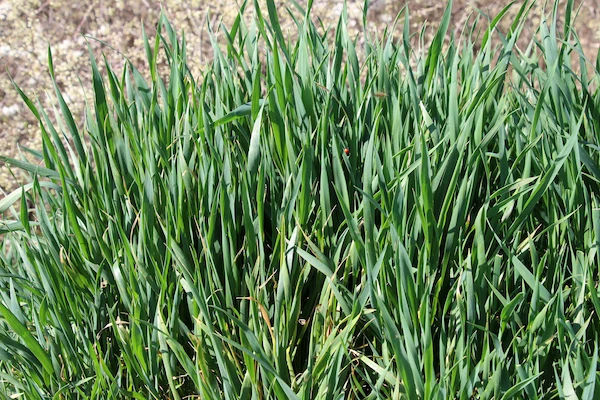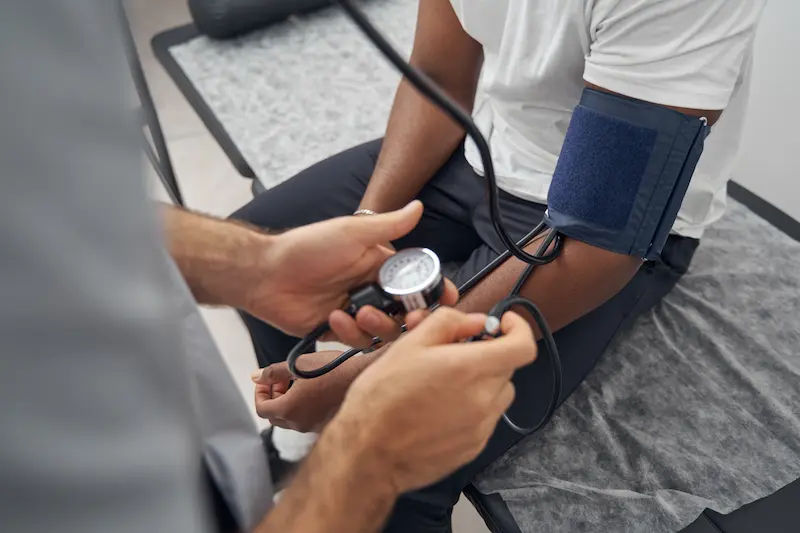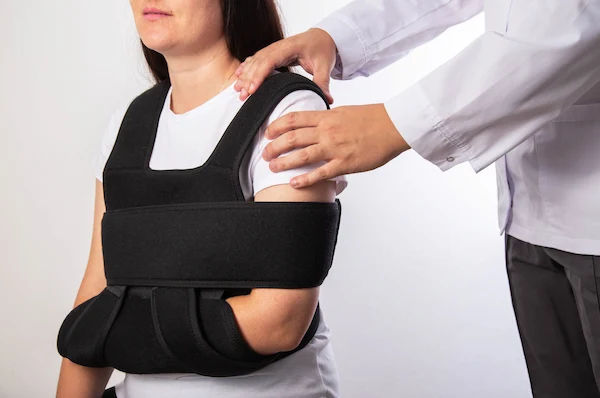Guide to Health Impact Of Air Pollution
Discover the serious health effects of air pollution, from respiratory and cardiovascular diseases to long-term chronic illnesses. Learn about the sources of pollutants and how to protect yourself.


Introduction
Every breath we take is essential for life, but what if the air itself is making us sick? The health impact of air pollution is a growing, invisible public health crisis, responsible for millions of premature deaths worldwide each year. Far from being just an environmental issue, polluted air is a complex mixture of toxic particles and gases that seep into our bodies, damaging our organs from our lungs to our heart and even our brain. This guide will demystify the health risks posed by invisible pollutants, explaining not only what they are but how they trigger disease. We'll explore the science behind the impact, identify who is most at risk, and, most importantly, provide you with actionable steps to protect yourself and your loved ones from the adverse effects of poor air quality. Understanding this pollution is the first step toward breathing easier and living healthier.
What exactly is Air Pollution? Breaking Down the Invisible Threat
Air pollution is not a single entity but a complex mixture of solid particles, liquid droplets, and gases found in the air. While some air pollution comes from natural sources like volcanic eruptions or wildfires, the majority of the harmful pollution we breathe today is a direct result of human activity—primarily the burning of fossil fuels for energy, transportation, and industry. This chemical cocktail varies from place to place but contains several key offenders that are universally recognized for their detrimental effects on human health.
The Usual Suspects: Common Air Pollutants and Their Sources
Particulate Matter (PM2.5 and PM10): The Tiny Assassins
- Often cited as the most dangerous pollutant to human health, particulate matter (PM) refers to inhalable particles of varying sizes. PM10 (particles with a diameter of 10 micrometers or smaller) can irritate the eyes, nose, and throat. However, PM2.5 (2.5 micrometers or smaller) is far more perilous. These fine particles are about 30 times smaller than the width of a human hair, allowing them to bypass our body's natural defenses in the nose and throat, penetrate deep into the lungs, and even enter the bloodstream. Major sources include vehicle exhaust, power plant emissions, industrial processes, and construction dust. The long-term effects of air pollution from PM2.5 exposure are profound, linking it to respiratory and cardiovascular mortality.
Nitrogen Dioxide (NO2): The Traffic Fume
This reddish brown gas is easily identified by its sharp, pungent odor and is a primary contributor to urban smog. It forms from high-temperature combustion, mainly from vehicles and power plants. NO2 inflames the lining of the lungs, reducing immunity to respiratory infections and aggravating asthma. Long-term exposure can lead to the development of asthma and is associated with reduced lung function growth in children.
The Respiratory System: The First and Hardest Hit
As the primary point of contact, our respiratory system bears the brunt of air pollution health risks. With every breath, pollutants travel down the trachea and into the bronchial tubes, causing irritation, inflammation, and damage to the delicate lung tissues.
From Asthma to COPD: The Link Between Pollution and Lung Disease
For the over 300 million people worldwide with asthma, air pollution is a known trigger for attacks, increasing the frequency and severity of symptoms like wheezing and breathlessness. More concerningly, a growing body of evidence suggests that long-term exposure, especially in childhood, may actually contribute to the development of asthma. Furthermore, for conditions like Chronic Obstructive Pulmonary Disease (COPD), which includes emphysema and chronic bronchitis, air pollution is a major driver of disease progression and exacerbation, leading to increased hospitalizations and mortality. If you experience a persistent cough, wheezing, or shortness of breath that worsens on poor air quality days, it is crucial to monitor your symptoms.
If these symptoms persist beyond two weeks, consult a doctor online with Apollo24|7 for further evaluation and a personalized management plan.
Consult a General Physician for the best advice
Conclusion
The evidence is clear and overwhelming: the health impact of air pollution is one of the most significant public health challenges of our time. It is a stealthy threat that contributes to a vast spectrum of diseases, affecting nearly every organ in our bodies and shortening countless lives. From triggering asthma attacks to increasing the risk of lifealtering heart attacks and strokes, the dangers are pervasive. However, this guide empowers you with knowledge—the first and most potent tool for protection. By understanding the pollutants, recognizing the risks, and implementing the practical steps outlined, you can take proactive control of your health. Start by checking your local air quality index daily, consider investing in indoor air purification, and advocate for cleaner air policies in your community. Your health, and the health of future generations, depends on the actions we take today. Breathe informed, breathe safe.
Consult a General Physician
Consult a General Physician

Dr. M L Ezhilarasan
General Practitioner
6 Years • MBBS
Visakhapatnam
Apollo 24|7 Clinic - Andhra Pradesh, Visakhapatnam

Dr D M Karthik
General Practitioner
4 Years • MBBS, Fellowship in Diabetes Mellitus, Advance certificate in Diabetes Mellitus, Derma Nutrition Certification
Visakhapatnam
Apollo 24|7 Clinic - Andhra Pradesh, Visakhapatnam

Dr. Dhanraj K
General Physician/ Internal Medicine Specialist
25 Years • MBBS, MD Internal Medicine - Osmania Medical College, Hyderabad
Hyderabad
Apollo Hospitals Jubilee Hills, Hyderabad
(400+ Patients)

Dr. Swarna Deepak K
General Physician/ Internal Medicine Specialist
20 Years • MBBS: MD (Internal Medicine) MRCP (UK), EDIC (European Diploma in Critical Care), IDCCM, IFCCM (Critical Care), FID (Royal Liverpool Academy)
Hyderabad
Apollo Hospitals Jubilee Hills, Hyderabad
(425+ Patients)

Dr. Vivek D
General Physician
4 Years • MBBS
Bengaluru
PRESTIGE SHANTHINIKETAN - SOCIETY CLINIC, Bengaluru
Consult a General Physician for the best advice

Dr. M L Ezhilarasan
General Practitioner
6 Years • MBBS
Visakhapatnam
Apollo 24|7 Clinic - Andhra Pradesh, Visakhapatnam

Dr D M Karthik
General Practitioner
4 Years • MBBS, Fellowship in Diabetes Mellitus, Advance certificate in Diabetes Mellitus, Derma Nutrition Certification
Visakhapatnam
Apollo 24|7 Clinic - Andhra Pradesh, Visakhapatnam

Dr. Dhanraj K
General Physician/ Internal Medicine Specialist
25 Years • MBBS, MD Internal Medicine - Osmania Medical College, Hyderabad
Hyderabad
Apollo Hospitals Jubilee Hills, Hyderabad
(400+ Patients)

Dr. Swarna Deepak K
General Physician/ Internal Medicine Specialist
20 Years • MBBS: MD (Internal Medicine) MRCP (UK), EDIC (European Diploma in Critical Care), IDCCM, IFCCM (Critical Care), FID (Royal Liverpool Academy)
Hyderabad
Apollo Hospitals Jubilee Hills, Hyderabad
(425+ Patients)

Dr. Vivek D
General Physician
4 Years • MBBS
Bengaluru
PRESTIGE SHANTHINIKETAN - SOCIETY CLINIC, Bengaluru
More articles from General Medical Consultation
Frequently Asked Questions
What are the first symptoms of bad air quality exposure?
Short-term symptoms often include irritation of the eyes, nose, and throat, coughing, phlegm, chest tightness, and shortness of breath. People with asthma may experience more frequent attacks. If you have underlying conditions, these symptoms can be more severe.
Do air purifiers really work for reducing health risks?
Yes, high-efficiency particulate air (HEPA) filters are very effective at removing PM2.5 and other particles from indoor air. They are highly recommended for bedrooms and living areas, especially for vulnerable individuals, to create a clean air sanctuary and reduce the overall impact of pm2.5 on lungs.
Can the damage from long-term air pollution exposure be reversed?
While some inflammatory damage may be reversible by reducing exposure, some effects, like the progression of COPD or the buildup of plaque in arteries, may be permanent. This is why prevention and early intervention are critical. The body has a remarkable ability to heal when exposure to pollutants is minimized.
Is the air inside my home safer than outdoor air?
Indoor air can often be 25 times more polluted than outdoor air due to factors like cooking fumes, cleaning products, mold, and dust mites. However, during periods of high outdoor pollution, keeping windows closed and using an air purifier can make your indoor air significantly safer.
What is the best mask for protection against air pollution?
Standard cloth or surgical masks offer little protection against PM2.5. For effective protection, look for respirator masks rated N95, KN95, or FFP2, which are designed to form a seal on the face and filter out over 95% of fine particulate matter.




